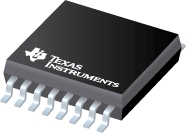SWITCHER® SIMPLE 42V, 0.5A Regulador de conmutación descendente 16-TSSOP -40 a 125
PDF, 409 Kb, Archivo publicado: agosto 19, 2007
PDF, 742 Kb, Revisión: B, Archivo publicado: mayo 3, 2004
Application Note 643 EMI/RFI Board Design
PDF, 219 Kb, Archivo publicado: sept 19, 2005
PDF, 558 Kb, Revisión: B, Archivo publicado: abr 23, 2013
This application report provides design information to help select an off-the-shelf inductor for anycontinuous-mode buck converter application.
PDF, 3.6 Mb, Revisión: A, Archivo publicado: abr 23, 2013
This application note will explore how the layout of your DC/DC power supply can significantly affect theamount of EMI that it produces. It will discuss several variations of a layout analyze the results andprovide answers to some common EMI questions such whether or not to use a shielded inductor.
PDF, 1.4 Mb, Revisión: A, Archivo publicado: abr 23, 2013
This application note provides thermal power analysis techniques for analyzing the power IC.
PDF, 2.7 Mb, Revisión: A, Archivo publicado: abr 23, 2013
This application report shows how to measure the critical points of a bode plot with only an audiogenerator (or simple signal generator) and an oscilloscope. The method is explained in an easy to followstep-by-step manner so that a power supply designer can start performing these measurements in a shortamount of time.
PDF, 201 Kb, Revisión: C, Archivo publicado: abr 19, 2016
PDF, 153 Kb, Revisión: A, Archivo publicado: mayo 6, 2013
The development of realistic predictions to assist the power supply engineer during the control loop design process is facilitated in this application report by appropriate small-signal and bode plot analysis, the validity of which is verified through simulation results.
PDF, 512 Kb, Revisión: A, Archivo publicado: sept 12, 2014
Printed Circuit Board (PCB) layout for Switched Mode Power Supplies (SMPS) is critical to achieve proper converter operation good thermal performance and excellent radiated EMI performance. Optimized board layout for low radiated EMI is made very simple by the package and pin arrangement of the SIMPLE SWITCHER Synchronous Buck Converter family LM4360x and LM4600x
PDF, 82 Kb, Revisión: C, Archivo publicado: abr 23, 2013
When designing a high frequency switching regulated power supply layout is very important. Using agood layout can solve many problems associated with these types of supplies. The problems due to a badlayout are often seen at high current levels and are usually more obvious at large input to output voltagedifferentials. Some of the main problems are loss of regulation at high output current
PDF, 61 Kb, Revisión: B, Archivo publicado: abr 23, 2013
The LM5574 and LM25574 switching regulators feature all of the functions necessary to implement anefficient high voltage buck regulator using a minimum of external components. These easy to useregulators include either a 42V (LM25574) or a 75V (LM5574) N-Channel buck switch with an outputcurrent capability of 0.5 Amps. The operating frequency is programmable from 50kHz up to 1MHz.Protectio
PDF, 374 Kb, Revisión: C, Archivo publicado: abr 23, 2013
This application report provides SIMPLE SWITCHER™ PCB layout guidelines.
PDF, 2.5 Mb, Revisión: C, Archivo publicado: abr 24, 2013
Electromagnetic Interference (EMI) is an unwanted effect between two electrical systems as a result ofeither electromagnetic radiation or electromagnetic conduction. EMI is the major adverse effect caused bythe application of switch-mode power supplies (SMPS). In switching power supplies EMI noise isunavoidable due to the switching actions of the semiconductor devices and resulting disconti
PDF, 538 Kb, Archivo publicado: marzo 30, 2007
PDF, 427 Kb, Revisión: C, Archivo publicado: abr 23, 2013
This application note discusses stresses in wide input DC-DC converters.
PDF, 9.2 Mb, Revisión: B, Archivo publicado: abr 23, 2013
This thermal application report provides guidelines for the optimal board layout to achieve the best thermalresistance for exposed packages. The thermal resistance between junction-to-ambient (ОёJA) is highlydependent on the PCB (Printed Circuit Board) design factors. This becomes more critical for packageshaving very low thermal resistance between junction-to-case such as exposed pad TSSOP
